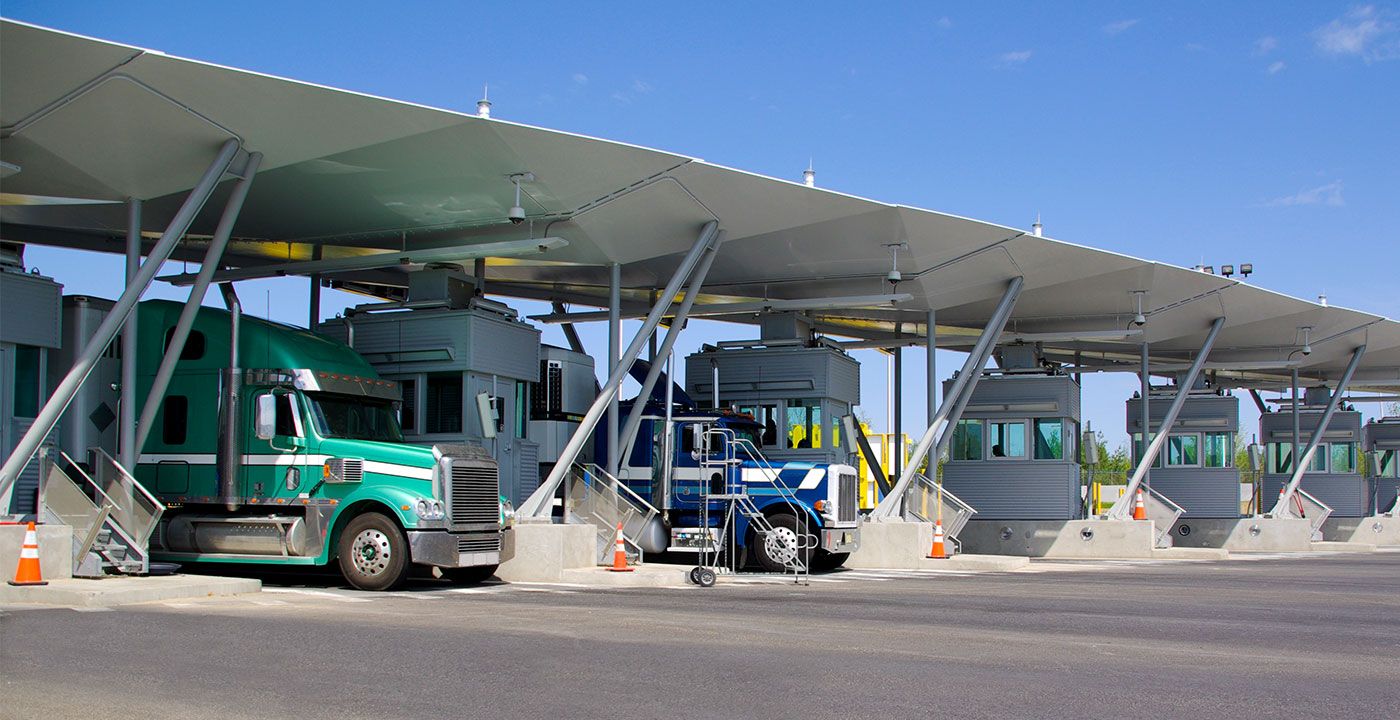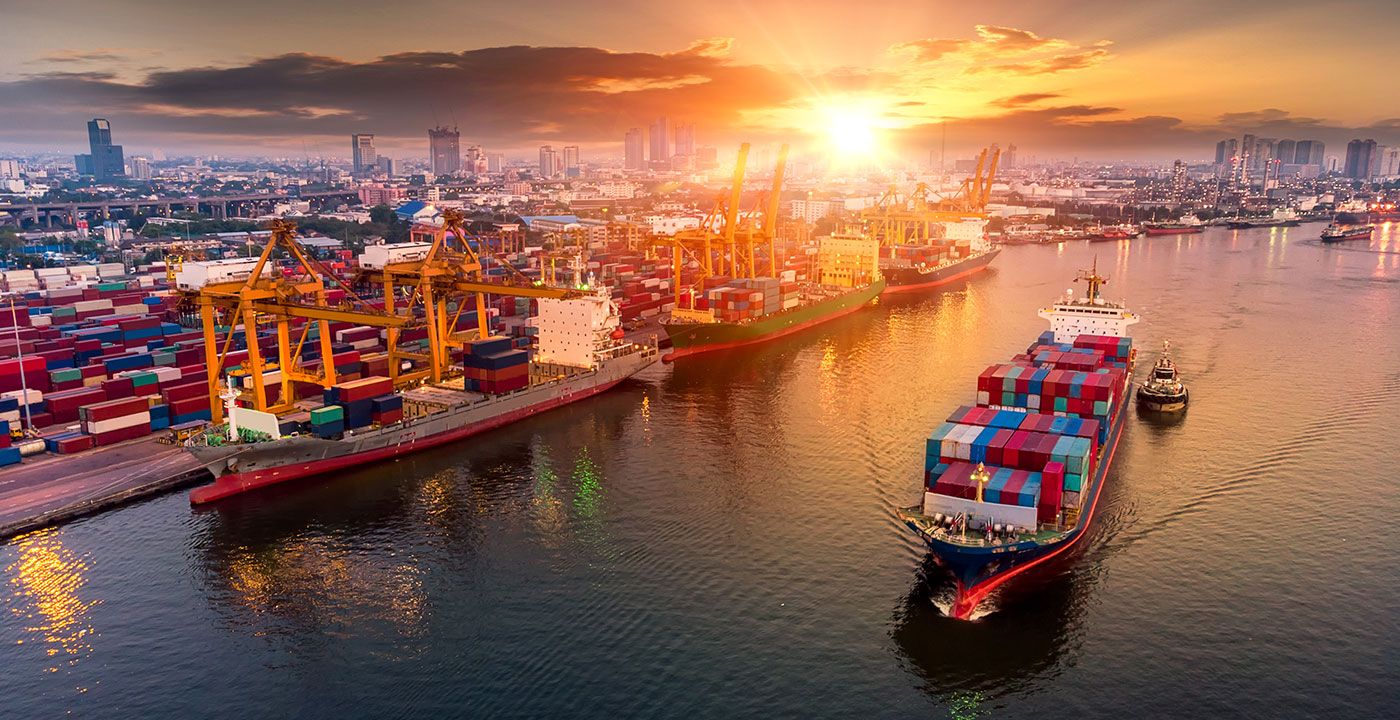Update: 4/8/2020 Capacity in the LTL markets are currently available to meet the majority of customer needs. This is especially true when it comes to essential goods that are moving to retailers. Even when it comes to meeting MABD and OTIF agreements with retailers, Averitt is positioned to ensure that shippers meet their delivery windows.
In order to ensure that carriers can service LTL shipments as quickly and efficiently as possible, shippers should provide as much detailed delivery information as possible, including:
- Additional services needed (lift gate, residential, etc.)
- Receiving times for the consignee if known
- Accurate consignee contact information
Additionally, it's important that shippers continue to utilize proper packaging and labeling at all times to avoid damages or potential mishaps in transit.
At Averitt, our LTL team utilizes state-of-the-art operational and routing planning technologies that allow our drivers to be as efficient as possible. We have a strict protocol of maintaining clean equipment to keep our drivers safe from COVID-19 and to reduce the exposure to customers.
Averitt LTL Customer Service: customerservice@averittexpress.com | 1-800-283-7488
Averitt Expedited LTL Support: expedited@averittexpress.com | 1-800-283-1995
Truckload, Intermodal and Multimodal Transportation
Update: 4/3/2020
Full load transportation remains strong in the marketplace. The most prominent issue that is being seen in the marketplace at the moment is shorter lead times. Shippers are pushing freight out the door as fast as they can.
Shorter lead times can result in higher costs and a reduced driver capacity in the market. With the auto industry closed down, capacity is prevalent at the moment. Rates have leveled out more for shippers with the exceptions of same-day pickups or deliveries into locations such as CA,IL,NJ, NY, and other areas that are being mandated with stay at home orders. (Rates are higher with the exceptions)
Key notes and practices to keep in mind:
- Ship out ahead of time if possible (more lead time equates to cheaper rates and more capacity)
- There is more access to capacity at this moment due to the government's ease of carrier restrictions in driver vetting and hours of service operations
- There is a bit more flexibility in rates and carrier options, but be mindful of lead times and accommodating driver schedules
Shippers can benefit by reaching out to carriers that have strong asset-based networks in addition to non-asset capabilities, offering the greatest amount of flexibility and capacity. The more options that are available to your carrier (including truckload, intermodal, brokerage and even air options) will provide you the greatest chance of securing capacity for your load.
Averitt North America Truckload Support: multimodal@averittexpress.com | 1-866-208-0168
Averitt Intermodal Support: intermodal@averittexpress.com | 1-844-610-9471
International Services
Update: 4/15/2020
The global nature of the COVID-19 outbreak has created a rolling effect on supply chains as the severity of the situation varies from one nation to the next. Initially, the impact on operations in China was the most common challenge that importers were facing. Now, we are seeing an increase in issues in other primary export companies such as Indonesia, India and Vietnam. India has recently extended their nationwide lockdown until May 3, 2020.
There is obviously a huge rush to get cargo from Asia to the U.S., and air services are currently the primary method of choice. However, the demand has created a backlog in many origins, including Shanghai where delays can take upwards of two weeks for a full chartered aircraft.
As the demand for air services put pressure on supply chains, right now is a great opportunity to reinvest efforts into ocean services. Aside from the considerably lower costs, there are Trans-Pacific service options that can deliver cargo to the inland U.S. that are quicker than traditional ocean solutions. Averitt's Asia Express Ocean service, for example, can provide transit times from areas such as Shanghai, Shenzhen and Guangzhou to Dallas and Memphis within 20 days.
With Regards To Medical Imports
Increasingly, factories around the world are converting at least portions of their production to support the need for medical related products. As a result, there is added scrutiny on such cargo. China, for example, requires exporters to obtain approval to ship medical equipment to other countries.
In the U.S., equipment that is intended for medical personnel must be certified for such use. Companies must ensure that their products, if intended for direct use by the medical industry, are certified and include the proper documentation.
There are many shippers importing personal protective equipment that are traditionally made for industrial use. These types of items must be marked "FOR INDUSTRIAL USE ONLY." Once these products arrive in the U.S., they can be distributed for peripheral use in the medical industry.
Additionally, airlines are requiring that medical equipment shipments be prepaid before leaving China. This step is being taken by the airlines in the event the FDA or Customs deny entry of the cargo.
Averitt International Support: international@averittexpress.com | 1-866-208-0167
Expedited and Specialized Delivery Services
Update: 4/3/2020
Carriers are seeing an increase in the requests for expedited delivery and specialized delivery services across their networks.
Carriers are seeing more and more requests for specialized delivery projects for a variety of industries, especially medical supplies, pharmaceuticals and food deliveries. These special delivery projects are constantly being adapted to adhere to guidelines for both adjusted delivery schedules for consignees as well as the need to protect the health and safety of delivery drivers.
Averitt Expedited Delivery Support: expedited@averittexpress.com | 1-800-283-1995
Averitt Specialized Services Support: specializedservices@averittexpress.com | 1-800-283-1995
Port-Related Services
Update: 4/7/2020
Ports throughout the U.S. and North America are seeing inconsistency in volumes. While China appears to be on the rebound at this point and we have started to see manufacturing increase, the rest of the world is now starting to enter critical periods of COVID-19 outbreaks.
While vessels and containers are available and moving from Asia, much of the rest of the word is starting to shut down. As social distancing practices increase and mandatory closings continue to climb, we will see more container volumes arrive to ports with nowhere for them to go. We have both current and new customers reaching out to us already for container storage questions as well as warehouse storage questions to relieve the financial stress of containers sitting on port. Port terminals are also concerned that they will run out of room as full containers start to add up.
Averitt PortSide Support: portside@averittexpress.com | 1-866-249-8496
Warehousing & Storage
Update: 4/7/2020
Container volumes that do enter the US supply chain are starting to look for intermediate warehousing due to non-essential plant/DC shut downs. The same is true for freight moving across the U.S. and Mexico border. As more businesses temporary close throughout the U.S., we expect warehousing space will tighten in numerous key markets. We are urging customers that have growing volumes of inventory, either domestically or internationally, to forecast square footage needs and lease it from us in advance.
Averitt has 20+ distribution and fulfillment facilities across the U.S. with more than 1.5 million sq. ft of warehousing space. Click here to view available locations.
Averitt Warehousing Support: distribution@averittexpress.com | 1-877-339-3530
Dedicated Supply Chain Fleets
Update: 4/16/2020
Dedicated shippers are being asked to communicate their safety plans to their carriers to ensure that driver fleets are compliant and for carriers to know if there are any additional steps they need to take to keep their associates safe.
Given their contractual obligation to a single customer, dedicated operations are not as nimble to redeploy assets and drivers as standard LTL and truckload services. Dedicated carriers can and will do their best to redeploy resources when their customer operations shut down. However, protracted shutdowns can lead to drivers seeking other options that offer full-time paychecks.
It’s important to communicate your expected operational interruptions to your dedicated service provider to allow them to plan and develop alternate strategies. This includes your plans to start or ramp back up operations that have either been shut down altogether, or have been downsized.
Look for innovative ways to utilize your dedicated capacity in place of 1-way truckload needs. This may involve assisting your fleet in finding 3rd-party loads to offset additional cost, or perhaps support other areas of your business. For example, a retail delivery fleet may be used to restock a distribution center in advance of the retailer restarting store deliveries.
Cross-Border: Mexico
Update: 4/3/2020
The Mexico Government has ordered all “non-essential” Mexico factories and Maquiladoras to shut operations down as of March 30 until April 30 to prevent the spread of COVID-19.
Many automotive facilities in Mexico had already shut down in past weeks, but the majority of other facilities had remained open until this order from the government. Facilities producing essential materials (such as medical supplies) can file for an exemption to remain open.
Transportation providers in Mexico (such as Averitt’s partners Paquetexpress and Trucka) are considered essential and will continue operating, allowing complete door-to-door services between the USA and Mexico.
Shippers who have freight in transit between the US and Mexico, or shippers who need to stage freight in either Mexico or the US as a result of the Mexico shutdown are finding options for warehousing at distribution centers and carrier service centers in nearby locations in both the Southern US and in Mexico. Some shippers are utilizing expedited and rail services to transport goods before the shutdown.
Averitt Mexico LTL Support: MexicoQuote@averittexpress.com | 1-866-208-0167
Averitt Mexico TL/Multimodal Support: Multimodal@averittexpress.com | 1-866-208-0168
Cross-Border: Canada
Update: 4/16/2020
According to a new rule effective Wednesday April 15, drivers crossing the Canadian border must wear a nonmedical mask or face covering under a new rule aimed at curbing the spread of COVID-19.
Additionally, in a cross-country effort, communities and businesses in Canada are working together to support drivers to provide locations for meals and support. For a complete list of locations offering support to drivers across Canada, visit this online list of locations.
Currently there is a 30-day restriction on non-essential travel across the US/Canadian border as a result of COVID-19. Commercial trucking is considered an essential service, so to date, there are no restrictions on the movement of goods for the purpose of trade between the US and Canada.
Canada border services officers are taking steps to ensure any traveler who may have symptoms are referred for further health screening and examination when required. If you're entering Canada and you have no symptoms, you must self-isolate for 14 days. Transport Canada did issue a media release on March 17, which provides a more detail explanation of the exceptions to the 14-day self isolation, specifying that individuals in the transportation sector, such as flight crews, truck drivers, rail roaders and mariners are excepted from the rule.
More information on Canada's COVID-19 Guidelines for Transportation can be found here.
Averitt Canada LTL Support: NorthAmerica@averittexpress.com | 1-866-208-0167
Averitt Canada TL/Multimodal Support: Multimodal@averittexpress.com | 1-866-208-0168








